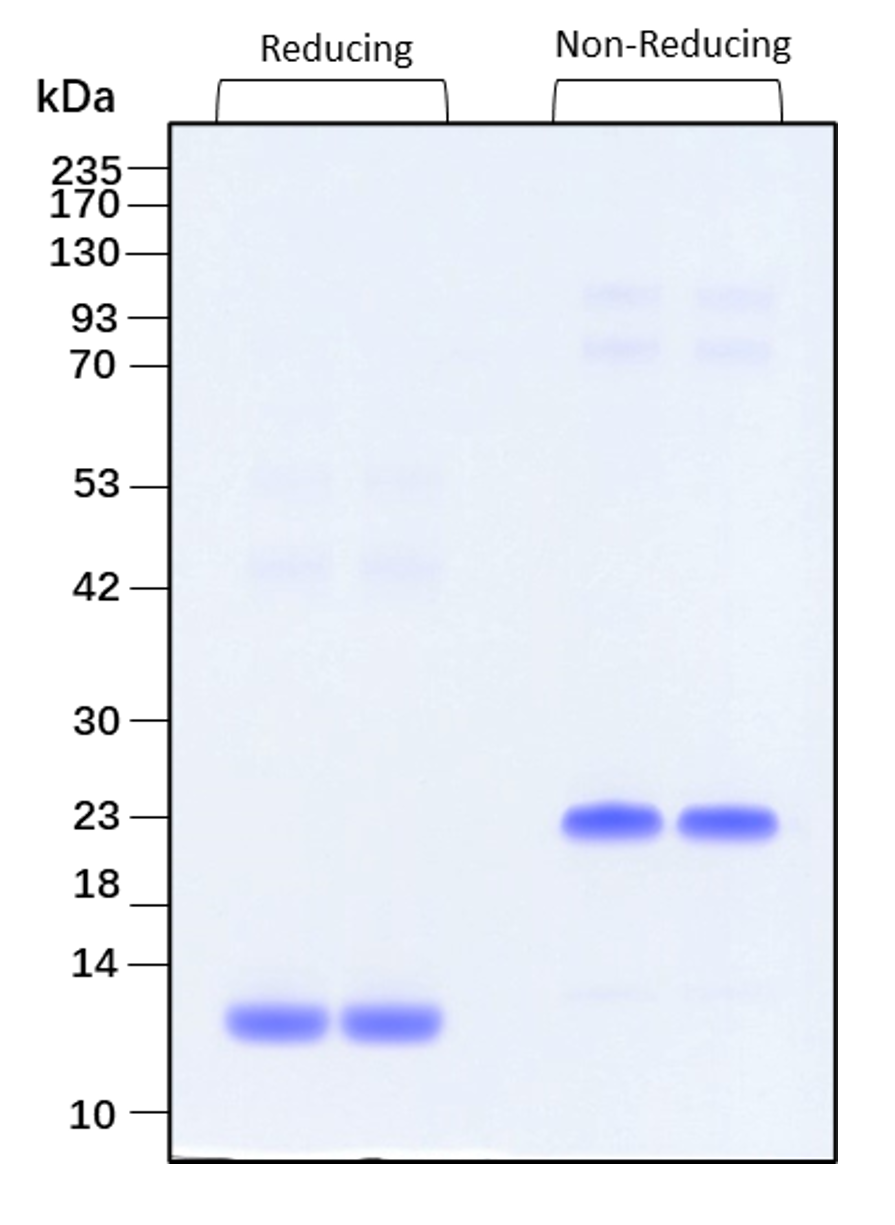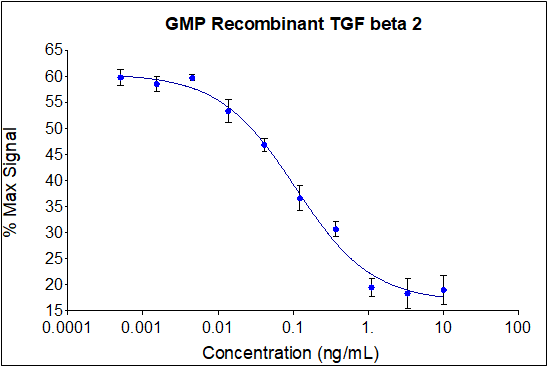Validation Data Gallery
Technical Specifications
| GeneID | 7042 |
| Species | Human |
| Expression | HEK293 |
| EC50 | 0.018-0.18 ng/mL |
| Specific Activity | minimally 2.00 x 107 IU/mg, typically 3.52 x 107 IU/mg |
| Purity | >95% |
| Endotoxin | <0.1 EU/µg |
| Accession Number | P61812 |
| Molecular Mass | 13 kDa reduced, 23 kDa non-reduced, homodimer, non-glycosylated |
| Formulation | 50mM Acetate pH 3.0 + 20% EtOH, See Certificate of Analysis for details |
| Species Reactivity | human,mouse |
Stability and Reconstitution
| Stability and Storage | Product Form | Temperature Conditions | Storage Time (From Date of Receipt) |
|---|---|---|---|
| Lyophilized | -20°C to -80°C | Until Expiry Date | |
| Lyophilized | Room Temperature | 2 weeks | |
| Reconstituted as per CofA | -20°C to -80°C | 6 months | |
| Reconstituted as per CofA | 4°C | 1 week | |
| Avoid repeated freeze-thaw cycles. | |||
| Reconstitution | Briefly centrifuge the vial before opening. It is recommended to reconstitute the protein to 0.2 mg/mL in sterile 20% ethanol + 50 mM NaOAc + 75 mM HOAc. Gently swirl or tap vial to mix. |
GMP Quality Policies
HumanKine® GMP (Good Manufacturing Practice) recombinant proteins are manufactured and validated in accordance with ISO 13485 quality management system and is compliant with GMP.
Our GMP recombinant proteins are animal component free (ACF), xeno free (XF) and tag free (TF). Read more about these policies here.
Background
Transforming growth factor beta-2 (TGFB2) belongs to the TGF-beta family. TGFB2 is a secreted protein known as a cytokine that plays a vital role during embryonic development (PMID 19289080). TGFB2 regulates cell proliferation, differentiation, adhesion, migration by transducing the signal through transmembrane receptors type I and type II (TGFBR1 and TGFBR2) and their downstream effectors, the SMAD proteins (PMID 18313409). Disruption of the TGFB/SMAD pathway has been implicated in many cancers types. TGFB2 has suppressive effects on interleukin-2 dependent T-cell growth (PMID 12064833). The TGFβ2 protein plays a role in the blood vessels formation, the regulation of muscle tissue and body fat development. TGFβ-2 is especially abundant in tissues related to the skeleton, where it helps regulate bone growth and form the extracellular matrix in the spaces between cells.
Synonyms
BSC 1 cell growth inhibitor, Cetermin, G TSF, Polyergin, TGF beta 2, TGF beta2, TGFB2



